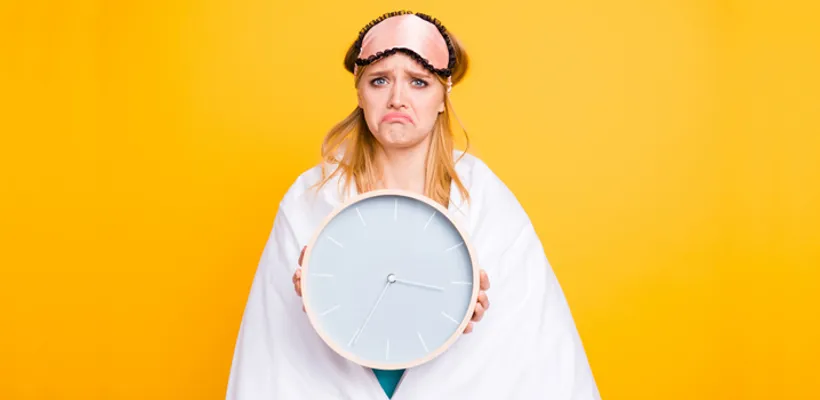World Sleep Day

Published: 14th March, 2019 in: Health Health Advice News
As World Sleep Day is upon us, now is the perfect time to think about how you can improve your quality of sleep, and what could possibly be stopping you getting a good night's sleep. it has been recorded that 1 in every 3 people in the UK are affected by insomnia, and more than a third of Brits have suffered from sleeping problems for more than 5 years; with a fifth of us having suffered for more than 10. As adults, we need between 7-9 hours of sleep every night, yet many of us don't get this amount of sleep. It has been noted that adults who sleep fewer than 6 hours a night have a 13% higher mortality risk than those who sleep at least 7 hours. Additionally, adults who sleep less than 7hours a night are 30% more likely to be obese than those who sleep for 9 hours or more
These facts and figures are all well and good, but how do we know if we are sleep deprived, what could be causing our difficulty to sleep, and how can we improve this in future? Public Health England says decreased communication, poor concentration, performance deterioration, and poor memory are just a few signs of sleep deprivation (to find out more read what they have to say HERE). It is clear how these symptoms can drastically affect your day-to-day life and make both your work life and home life hard to manage. Issues with sleep can be caused by many things, but the most common are stress, partner disturbances (such as snoring and fidgeting), noise from external sources, and uncomfortable beds.
With all this in mind, how can we look to improve our sleep? To begin with, you need to create a good sleeping environment; put away electronic devices and switch off TVs as the light and noise from these will make it difficult to sleep. You should have a period before you attempt to sleep in which you are not in front of a screen, this will allow your body to produce melatonin which helps you sleep as melatonin production can be suppressed by looking at screens on electronic devices. If light and sound are difficult for you to distance yourself from when trying to sleep, you could give an eye mask and ear plugs a go, to block out these disturbances. It is also important that your bed is appropriate for sleep; if you can't get comfortable on your mattress or pillows you should look to change these as soon as possible. This will stop you from tossing and turning throughout the night. When creating an appropriate sleep space you need to know what works best for you. Where many may like silence for sleep others find that white noise or calming music help them to drift off. Why not try a white noise machine or some spa-like music playing very quietly, so your room doesn't feel eerily quiet?
Once you have created an appropriate sleeping environment, try to pinpoint what it is that is affecting your sleep. Many don't realise, but following a schedule when it comes to sleeping is extremely important in helping you get a good night's sleep. Allowing your body to get used to a schedule (for example, going to bed at 10 pm and waking up at 6:30 am) will be a good solution to many of your sleep problems. You should also think about what you are eating and drinking before you sleep. Consuming large amounts of alcohol or caffeine before bed will lead to a poor night's sleep. further to this, you should consider what time you are eating your evening meals before you sleep as eating right before bed can result in poorer sleep than usual.
If you struggle to sleep due to partner disturbances such as snoring you could try wearing earplugs to block out the noise, or perhaps get your partner to give one of the many snoring aids available a try (here at Weldricks we offer many products such as sprays, nasal strips, and nasal dilators just to name a few). If you are struggling to sleep due to stress or worry then try to calm yourself before bed; spend some time self-reflecting, meditation help many to relax, or perhaps read a book to allow for some escapism before you sleep. You could also try herbal remedies which are said to help you calmly drift off, such as herbal elixirs, lavender sprays, or stress-reducing mists.
You can also choose medicinal aids to help you sleep, however, if you have tried the above methods and are still struggling to sleep, it is recommended that you talk to a doctor or pharmacist before looking into medicinal aids. A good night's sleep is vital for our minds and bodies to function properly, and there are many different methods you can try to help aid your sleep pattern.
For more information check out the Public Health England and Gov.uk article HERE. You could also check out the Kaymed article HERE for some interesting sleep statistics.